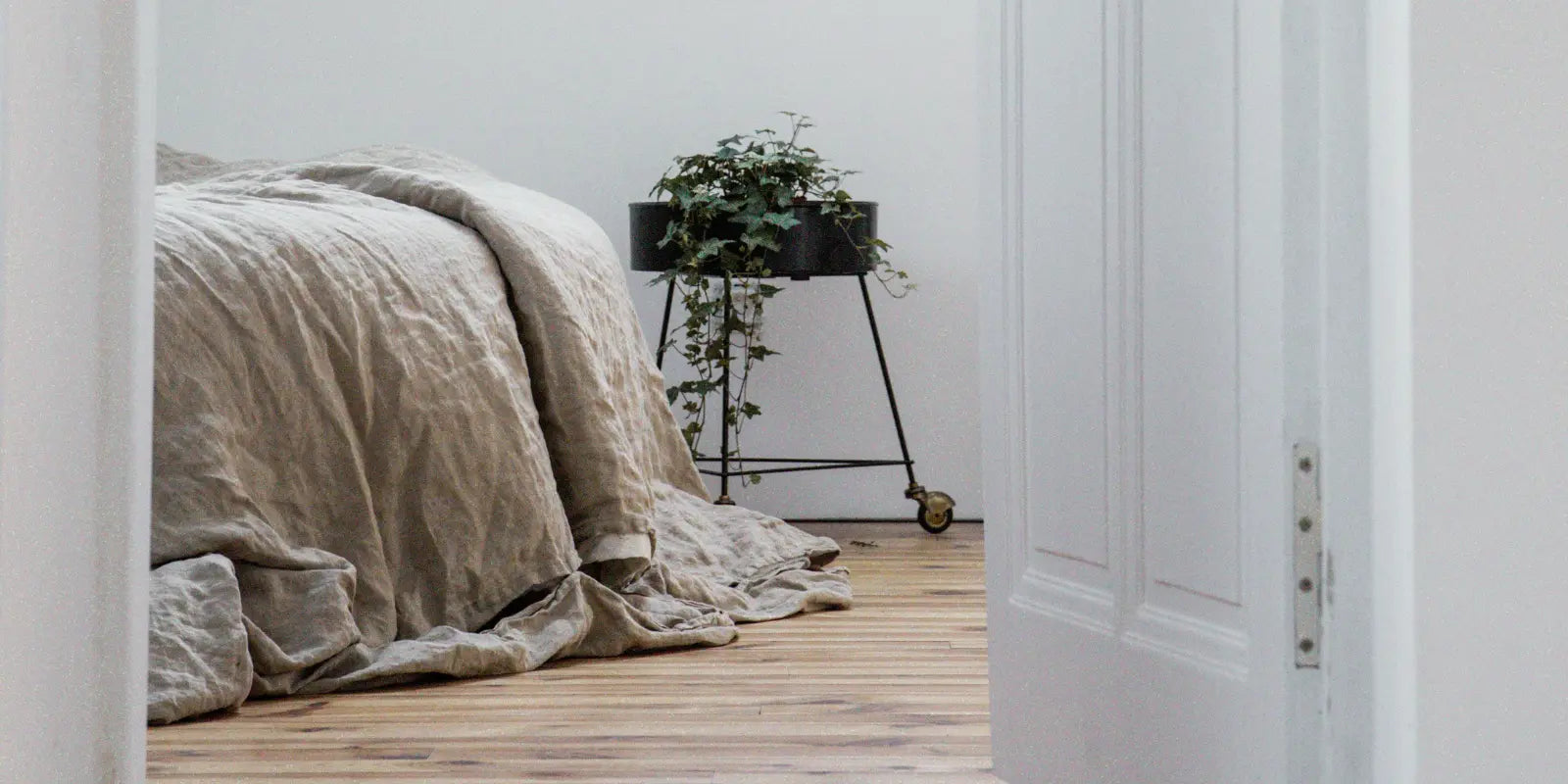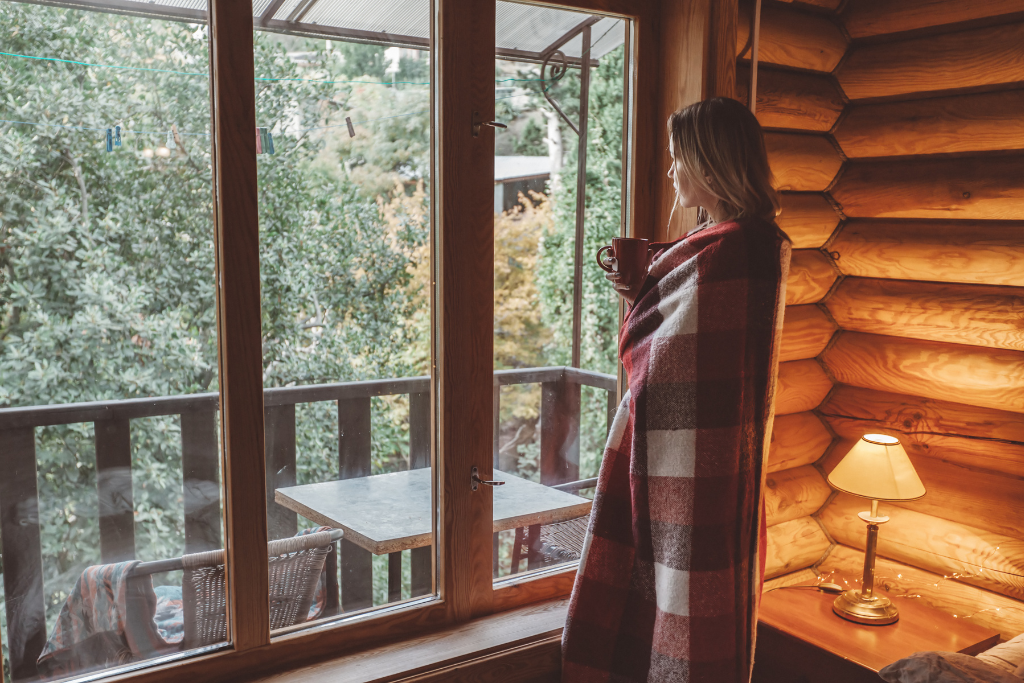Your Cart is Empty
Menu

Unplug and Reconnect With a Good Night's Sleep
April 09, 2019 2 min read

Laptops, smart phones, and tablets have infiltrated our daily lives, from using our phone as an alarm clock in the morning to streaming movies on our tablet before bedtime. Even after we log off at the end of the day, the consequences of all that screen time linger into our sleeping hours. We may be asleep, but the effects of time spent in the digital glow are keeping us from waking up rested. It’s all about the light.
Light does more than just illuminate our surroundings. It affects our behavior, performance, and alertness. Natural light is best; humans evolved to the beat of the dark/light patterns of a 24-hour day. In the grand scheme of things, electric light is a relative newcomer. And now the blue light radiating from our digital companions has moved us even farther from the ebb and flow of light our bodies crave.

It’s Simple Science
There’s a chemical in our brain that tells us when it’s time to sleep. Released into our system in the hours before bedtime, melatonin helps regulate our circadian rhythm—our 24-hour biological cycle. Levels are low during daylight, higher during darkness. It’s why you start to feel drowsy and welcome sleep at bedtime. Artificial light, especially the blue light from digital screens, inhibits melatonin production and disrupts this rhythm. We feel alert even as our bodies grow tired, and it becomes harder to fall asleep and stay asleep.
A 2013 study from the University of Colorado illustrates how a little digital detox can improve our well being. Researchers sent a group of test subjects on a camping trip to the Rockies. Device free and exposed to only natural light, within a week their circadian clocks had reset, synchronizing with the rising and setting of the sun.

A Simple Solution
We're seeing an increase in products marketed to counteract the effects of these sleep spoilers. Tinted goggles to filter out blue light, software that enables your computer to echo natural light transitions, and entire lighting systems aimed at recreating natural daylight in your home. A step in the right direction, but this is one of those times when a simple less-is-more approach is best. Diminishing the amount of blue light addresses only part of the problem and ignores another disruptive aspect of late-night screen time. Even if you coax your melatonin levels to rise via artificial means, you’re still choosing to stay focused on digital content when your mind should be quieting down for the transition into sleep.
The best solution? Unplug. That’s it. A couple of hours before bedtime, power down. Pick up a paper book, grab a pencil and do a crossword puzzle. You’ll not only bring your chemical balance back in line with your body’s desired sleep state, you’ll reduce the amount of stimuli reaching your brain, allowing your mind to relax, let go of the day, and ease into slumber. You’ll sleep more deeply and wake more rested. And your digital fix will be waiting when you’re ready to get back to it the next day.
References:
Entrainment of the Human Circadian Clock to the Natural Light-Dark Cycle
Leave a comment
Comments will be approved before showing up.
Also in Blog

10 Eco-Friendly Home Habits for 2025
March 10, 2025 5 min read
Whether it’s conserving more of the resources we use, minimizing the amount of waste we generate, or preserving our vital ecosystems, there are numerous ways to promote the well-being of ourselves and the planet we call home. With that in mind, let’s explore 10 ways to live a more eco-friendly lifestyle at home in 2025!

The Life Cycle of Our Wool: From Farm to Bedroom
January 15, 2025 4 min read
At Holy Lamb Organics, we are committed to transparency and sustainability. Our Premium Eco Wool and Certified Organic Wool products are a testament to this, crafted with ethically sourced wool that has been handled with care at every step of the journey!

How to Create a Cozy Bedroom Ambiance
November 14, 2024 2 min read
As temperatures drop, creating a cozy sleep environment becomes essential for comfort and well-being. The winter months can make your bedroom feel chilly and uninviting, but with a few intentional changes, you can turn it into a sanctuary for rest and rejuvenation!
Read MoreSubscribe
Sign up to get the latest on sales, new releases and more …

 Find a Retailer
Find a Retailer